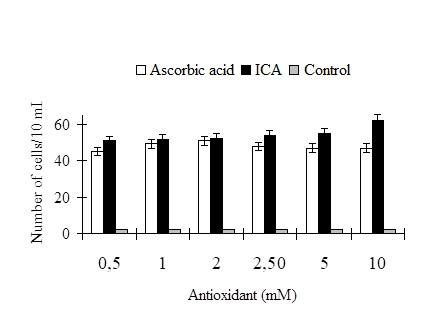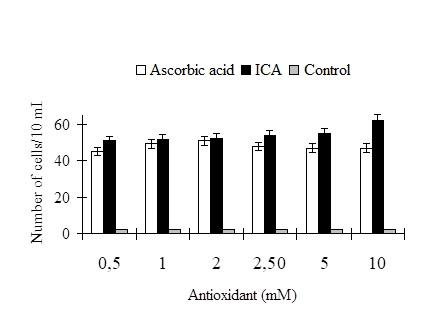
Credit: Anatoliy Inozemtsev
A team of scientists from the Faculty of Biology of Lomonosov Moscow State University and Laboratory of Aerobic Metabolism in Microorganisms of Skryabin Institute of Biochemistry and Physiology of Microorganisms of the Russian Academy of Sciences found a new substance with anti-oxidant properties able protect living organisms from various toxic compounds. The results of the study were published in Preparative Biochemistry and Biotechnology magazine.
A group of scientists found and investigated a new property of isocitric acid – an organic compound that plays an important role in the functioning of cells. The researchers produced the acid in the laboratory using a special strain of yeast. This method helps one obtain a safe and puretarget substance compared to chemical synthesis. The purpose of the study was to investigate whether isocitric acid supports resistance against harmful oxidation substances and to what extent. For lab studies the team chose single-cell organisms – infusoria Paramecium caudatum.
"Infusoria have a quite big surface of contact with the environment compared to their size. They quickly react to toxic substances by exhibiting a range of biological, physiological, and biochemical changes," — explained Anatoliy Inozemtsev, a co-author of the work and lead researcher of the Department of Higher Nervous Activity of the Faculty of Biology, MSU. "Moreover, they have a filtration feeding mechanism which increases the chance of toxic substances accumulation and enhances their influence on the body. Therefore, infusoria are a convenient model for biological testing of chemical substances."
The team conducted a series of experiments subjecting infusoria to different oxidants — substances that cause harm to living organisms by starting oxidative reactions. In their work the scientists used the most widely spread oxidants, including hydrogen peroxide and salts of heavy metals. The influence of these substances on infusoria caused the microorganisms to die. In a repeated set of experiments the researchers treated infusoria with isocitric acid. For the purpose ofcomparison, the same set of experiments was performed with a classic anti-oxidant, ascorbic acid.
As a result, the scientists established that isocitric acid increased the survival rate of the cells 25-31 times compared to untreated infusoria. Moreover, the positive effect of isocitric acid surpassed that of ascorbic acid. Another important result of the work is the fact that isocitric acid is easy to produce and integrate in manufacturing processes.
"The only obstacle for the development of implementation of this simple and affordable compound is the absence of manufacturing facilities in our country. We hope that further studies of the effects of isocitric acid in lab animals (rats) will help us overcome this issue," — added Anatoliy Inozemtsev.
###
Media Contact
Yana Khlyustova
[email protected]
http://www.msu.ru
Original Source
http://www.tandfonline.com/doi/full/10.1080/10826068.2017.1381622 http://dx.doi.org/10.1080/10826068.2017.1381622





